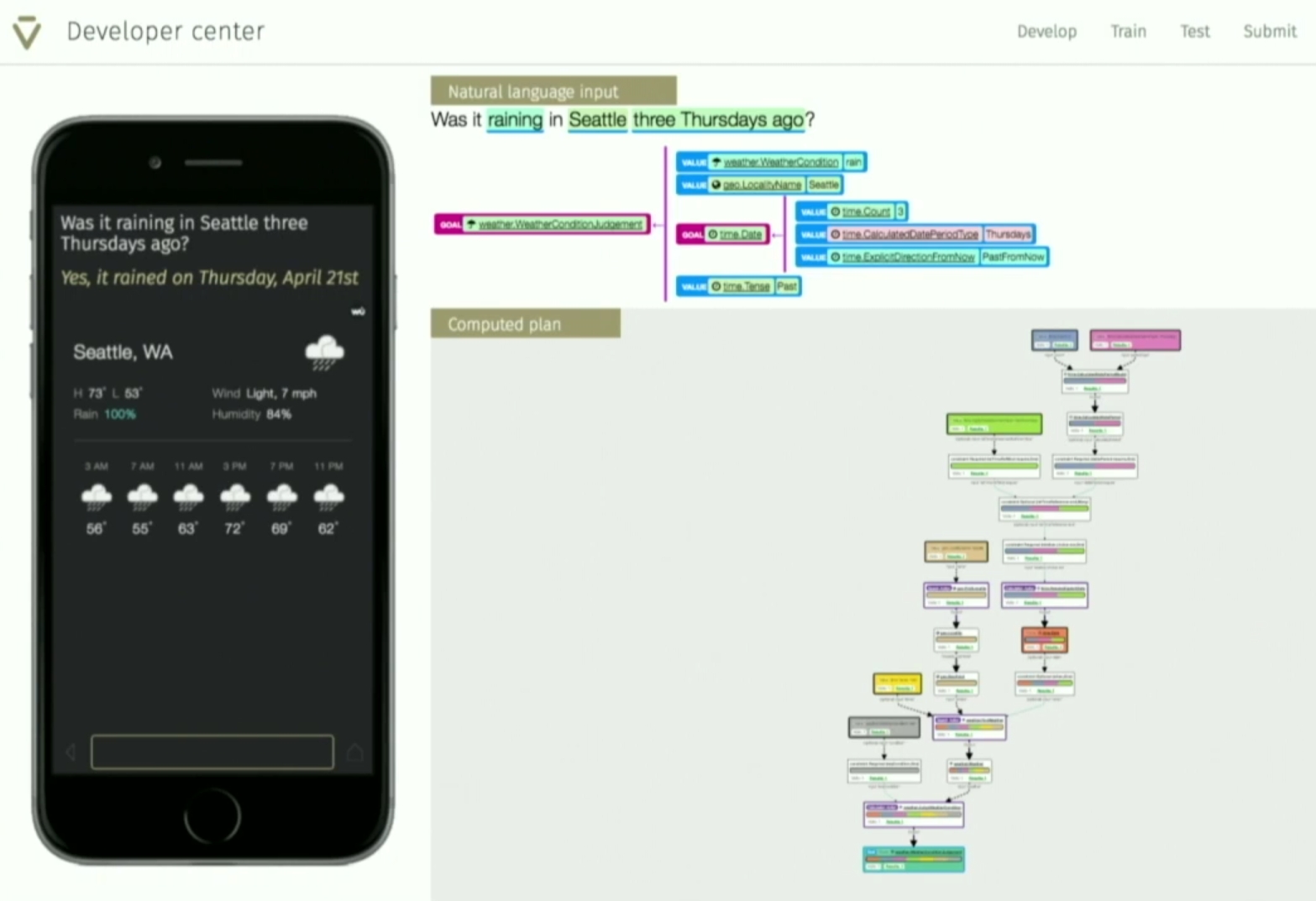In a world where someone is always looking for the next ‘big thing’, there is a cluster of trends emerging in the technology arena, Artificial Intelligence (AI), personal voice assistance, bots and X-as-a-platform, ie messaging as a platform for instance. Launched at TechCrunch’s disrupt conference overnight there is a new entrant into this space, called VIV.
VIV, derived from the Latin word vita, for life, and is an Artificial Intelligence voice assistant developed by the creators of Siri, which was founded in 2007 and sold to Apple in 2010. The team behind Siri have returned to this space this time with the goal of achieving platform “ubiquity”.
VIV was demoed live on stage at the conference, albeit it with well-tested examples I’m sure. Apart from accidentally referring to VIV as Siri and accidentally ordering an Uber, the demonstration from Dag Kittlaus, Co-founder, and CEO of VIV, went off without a hitch. There was nothing breathtaking about the demo, it was the same demo we’ve seen before where a non-simple compound question is asked and the AI assistant returns an answer – voice answers are not yet enabled but are coming thanks to a partnership with Nuance.
This isn’t to suggest the demonstration wasn’t impressive, or that it didn’t work, it was and it did. However, this has long been the promise of current and emerging voice assistants for some time. However, unlike many of the previous iterations of voice assistance somehow VIV feels different, this feels like it may just be close to achieving something new, dare I say something transformative?
The full video is linked below.
For those who don’t have time to watch the full 28 minutes of video in essence what VIV seems to be is Voice interaction AI-powered bot network. VIV looks like it is trying to converge many of the current trends in tech to become the new portal or platform to interface with everything. Want to order flowers, book a hotel, order an Uber, pay a friend back for that beer and check the weather? VIV wants you to do all of that and more just by asking.
VIV is hoping that they can become as ubiquitous as Wi-Fi, Bluetooth, search or location is on current devices. They’ve even chosen a logo they think will fit into our current iconography lexicon.

VIV envisages a future where voice assistants are wherever you are, on your phone, on your PC, in you car, or in your house etc. And they want to be both the access portal for consumers and the implementation/ interaction platform for developers/ brands for these emerging trends.
The demonstration showed how VIV was able to break down the spoken request into a “dynamic program generation”, where natural language is broken down into its components and then the AI generate a customised “program” on the fly uniquely for each query to source those results and return them in a coherent way.

VIV relies on “training” where developers build models that tell VIV what your service, website or etc offers and how to access it. This method of teaching VIV what is available and how to access it allows it to generate it’s customised ‘programs’ to answer user queries.

During the interview that followed the demonstration, some interesting tidbits come to light. VIV has had several offers for acquisition from companies “you would know”, Dag indicated that they had a vision for VIV that would see it be “ubiquitous”. When asked if they would be tempted to sell VIV like they did Siri he simply answered they would only follow a path that would lead to their goals.
Reading between the lines VIV is standing strong against any acquisition that would see them become a part of a walled garden or limited to only one particular platform or ecosystem. It’s clear that they think they have the ability to create a truly universal system that transcends both platforms and even hardware.
However, this isn’t looking like an altruistic attempt to create an open platform, it looks to be a group with a vision who don’t want that vision subverted in the name of furthering another platform, product or agenda. I have to say if I can’t have an open platform the next best think would be a platform willing to deploy anywhere.
VIV’s CEO was directly asked about any hardware efforts they may be looking at to showcase or incorporate VIV. Unfortunately, VIV has no plans for any first party hardware, instead, they are focusing on the platform. However, Dag did hint that they have been approached by some interested parties who want to use VIV in ways that even they hadn’t imagined.
When is VIV arriving you ask? Early access to a rolling launch is expected to start near the end of this year with selected partners at launch. From there the developer portal will slowly be opened up to allow more and more services to integrate into VIVs learning platform.
The promise of VIV is certainly tantalising, and the notion that a service could rise to be omnipresent and be hardware and platform independent is more that a little appealing. However, the service still seems to rely on 3rd parties plugging into VIV and training their services and functions if VIV can’t convince enough service to plug in they may find themselves with a great product that has limited functionality.
Regionality is another issue we will be interested to see how it play out. A lot of services simply don’t function or are very limited outside of the US. Will VIV be a viable and vibrant international offering that is able to understand queries in multiple languages and localities?
Chat bots are proving to be more of an annoyance in the early days so perhaps having an AI voice assistant that can simply access the right service for your context and query may actually be a far better implementation of the AI/ Bot future we are all apparently hurtling towards?
Are you excited for a more advanced natural language voice assistant? Would you replace OK google with VIV? let us know in the comments.




